All about Kenya
27 element(s) found

Article(s)
Calling for Martin Mavenjina’s Safe and Unconditional Return to Kenya
By The World Coalition Against the Death Penalty, on 11 July 2025
The World Coalition Against the Death Penalty (World Coalition) has been informed that Martin Mavenjina was unjustifiably forced to leave Kenya on 5 July 2025. Mr. Mavenjina had just been elected as a Vice-President of the World Coalition on 1 July, with a two-year mandate.
2025
Kenya

Article(s)
49th UPR Session Highlights Continued Calls for the Respect of International Human Rights Standards
By Sandra Deballe, on 22 May 2025
The 49th session of the United Nations’ Universal Periodic Review (UPR) session took place from the 28th of April to the 9th of May 2025 in Geneva, Switzerland. It showcased the increasing international push for death penalty reform, with a significant number of recommendations for Grenada, Guyana, Kenya, Kuwait, Laos, Lesotho.
2025
Grenada
Guyana
Warning: Undefined variable $tmp in /home/worldcoa/coalition2020/wp-content/themes/WCADP/template-parts/contents.php on line 27
Kenya
Kuwait
Lao People's Democratic Republic
Lesotho
Trend Towards Abolition
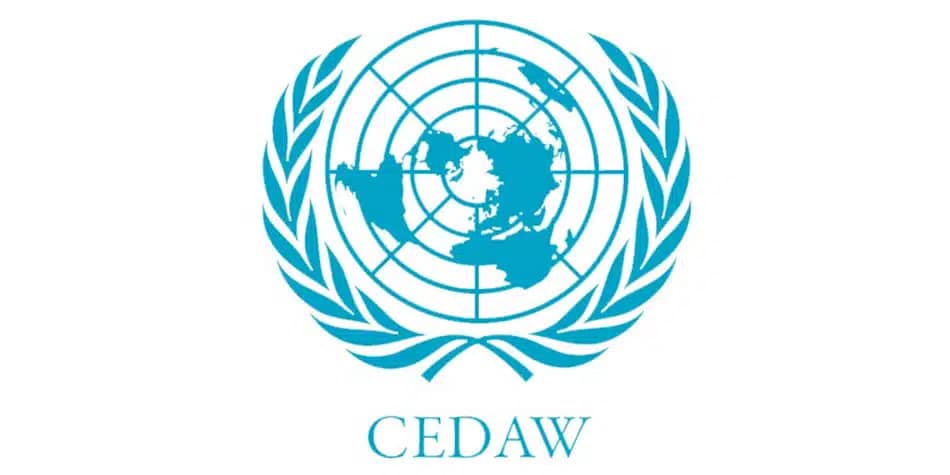
Article(s)
Abolitionist advocacy at the 90th session and 92nd pre-session of the CEDAW Committee
By the World Coalition Against the Death Penalty, on 14 March 2025
The World Coalition Against the Death Penalty (World Coalition) actively engaged in advocacy during the 90th session of the Committee on the Elimination of Discrimination Against Women (CEDAW), held in Geneva from February 3 to 21, 2025, to highlight gender-based discrimination in the application of the death penalty in Sri Lanka.
2025
Gender
Warning: Undefined variable $tmp in /home/worldcoa/coalition2020/wp-content/themes/WCADP/template-parts/contents.php on line 27
Iraq
Kenya
Qatar
Sri Lanka
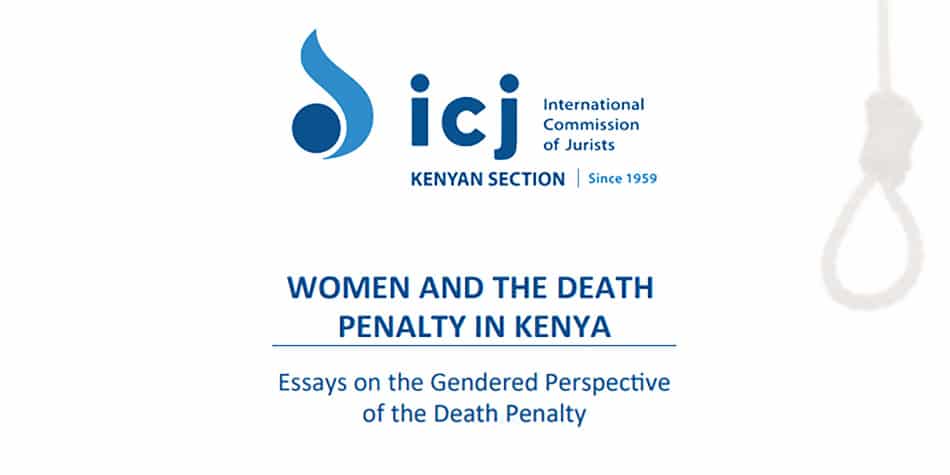
Article(s)
ICJ Kenya Makes Gender Discrimination in Capital Punishment Visible
By World coalition against the death penalty, on 8 March 2024
Kenya is one of a few target countries for the World Coalition Against the Death Penalty’s “Gender and the Death Penalty” campaign; a campaign that is being conducted in collaboration with its member organisations in the country, namely the Kenyan Section of the International Commission of Jurists (ICJ Kenya) and the Kenya Human Rights Commission.
2024
Gender
Gender
Kenya
Kenya
Warning: Undefined variable $tmp in /home/worldcoa/coalition2020/wp-content/themes/WCADP/template-parts/contents.php on line 27
Document(s)
Women and The Death Penalty in Kenya: Essays on the Gendered Perspective of the Death Penalty
on 2 February 2024
2024
NGO report
Warning: Undefined variable $liste_type_doc in /home/worldcoa/coalition2020/wp-content/themes/WCADP/template-parts/contents-document.php on line 21
Warning: Undefined variable $liste_themes in /home/worldcoa/coalition2020/wp-content/themes/WCADP/template-parts/contents-document.php on line 35
Death Row Conditions
Fair Trial
Gender
Warning: Undefined variable $liste_pays in /home/worldcoa/coalition2020/wp-content/themes/WCADP/template-parts/contents-document.php on line 40
Kenya
Women
Warning: Undefined variable $tag_langue in /home/worldcoa/coalition2020/wp-content/themes/WCADP/template-parts/contents-document.php on line 85
More details See the document
This publication seeks to make visible the gender and intersectional discrimination faced by women in the judicial process leading to the death penalty. Through the various articlesin this publication, the authors bring to light the reality of women facing the death penalty through a different lens.
The first author, Shekinah Bright Kiting’a, in making a compelling case for abolition of the death penalty, explores how the death penalty uniquely affects women in the context of motherhood. Further, she highlights the rights and well-being of the children affected by their mothers’ death sentences, revealing flaws in our legal and ethical systems. With the overall aim of advocating for its abolition due to its significant impact on both parenthood and children’s rights, her article seeks to push for reforms that honour motherhood and prioritize children’s well-being in these difficult circumstances.
Kenaya Komba dissects gender disparity in the judicial system by exploring the intersection of domestic violence and the death penalty. In making a case for a restorative approach to justice, her article analyses the impact of capital punishment on victims of domestic violence and the systemic injustice and biases they continue to grapple with. Her elaborate analysis of the Constitution of Kenya, 2010 and the Protection Against Domestic Violence Act, 2016, highlights the urgent need for reform in the legal system.
While Analyzing the role the media plays in shaping perceptions of women on death row, Patricia Chepkirui evaluates the implications of positive and negative media portrayals of such women by highlighting the ethical responsibilities of media in the coverage of women on death row cases. The article ultimately underscores the significance of responsiblemedia coverage in ensuring that media exposure of cases of women on death row is fair,balanced, and respectful of their rights and dignity.
Alex Tamei delves into the intricacies of abuse, gender-based violence, and trauma as mitigating factors in death penalty sentencing for women. His article comparatively analyses two Kenyan cases of murder in retaliation to intimate partner violence, seeking to shed light on the plight of victims of gender-based violence. The article effortlessly brings out the nexus between the death penalty and intimate partner violence and makessolid recommendations for change.
The fifth author, Patience Chepchirchir, delves into the nexus between psychological abuse and provocation. Through her article, she brings out the scope of psychological abuse while focusing on the linkage between emotional abuse and provocation and how the same can be considered as mitigating factors. Through an elaborate analysis of case law, she makes a case for psychological abuse of women as a mitigating circumstance during sentencing.
Stella Cherono’s article reflects on the intersectional discrimination faced by women in the criminal trial process leading to death row. The article highlights the complex and overlapping forms of discrimination women experience during the pretrial, trial and sentencing stages. Through her comprehensive analysis of gendered pathways to offending and imprisonment, she challenges how society perceives discrimination.
Loraine Koskei Interrogates the emerging jurisprudence on Intimate Partner Violence.Her article lays out the gendered factor in the commissioning and sentencing of women convicted of murder and offers possible recommendations.
- Document type NGO report
- Countries list Kenya
- Themes list Death Row Conditions / Fair Trial / Gender / Women
Warning: Undefined variable $lien_langue in /home/worldcoa/coalition2020/wp-content/themes/WCADP/template-parts/contents-document.php on line 127
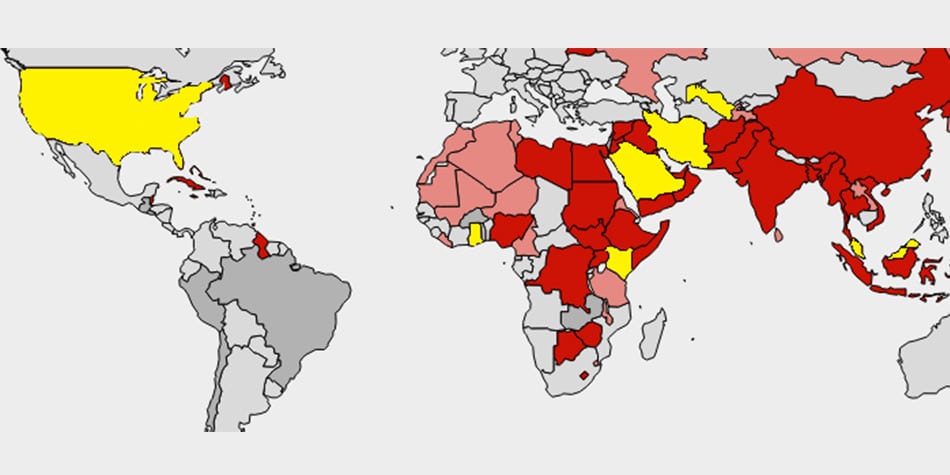
Article(s)
Mid-terms : Un premier semestre 2023 marqué par de multiples abolitions
By Nellia Halimi, on 9 October 2023
Les sept premiers mois de 2023 ont été riches pour la communauté abolitionniste avec un nouveau pays abolitionniste, un nouvel État abolitionniste aux États-Unis, ainsi que des progrès pour l’abolition dans de nombreux pays. Toutefois, certains pays continuent d’appliquer la peine de mort et le nombre d’exécutions a augmenté de manière alarmante.
2023
Ghana
Warning: Undefined variable $tmp in /home/worldcoa/coalition2020/wp-content/themes/WCADP/template-parts/contents.php on line 27
Iran (Islamic Republic of)
Kenya
Malaysia
Saudi Arabia
Singapore
United States
Uzbekistan

Article(s)
Mid-terms: A first half of 2023 marked by multiple abolitions
By Nellia Halimi, on 9 October 2023
The first seven months of 2023 have been rich for the abolitionist community with a new abolitionist country, a new abolitionist state in the United States, as well as progress for abolition within multiple countries. However, some countries continue to use the death penalty and there have been alarming increases in executions.
Ghana
Warning: Undefined variable $tmp in /home/worldcoa/coalition2020/wp-content/themes/WCADP/template-parts/contents.php on line 27
Iran (Islamic Republic of)
Kenya
Malaysia
Saudi Arabia
Singapore
Trend Towards Abolition
United States
Uzbekistan
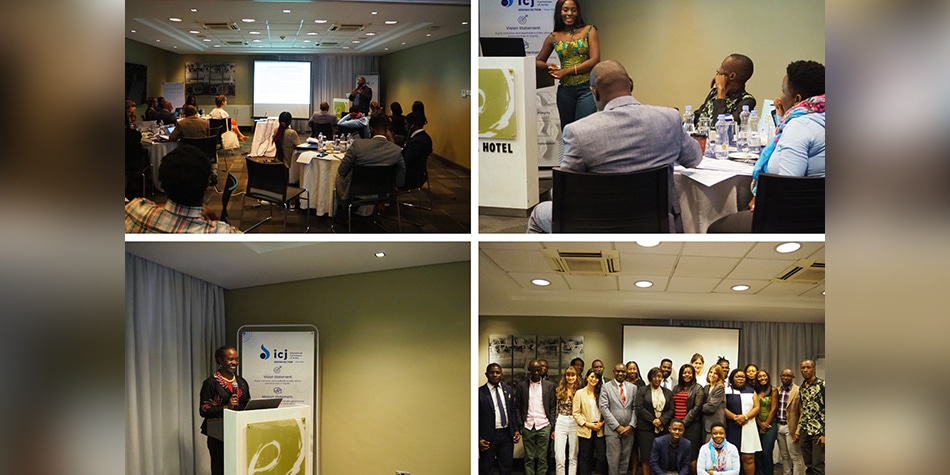
Article(s)
Séminaire Est-Africain sur les bonnes pratiques au Kenya : Un rassemblement clé pour le mouvement abolitionniste africain
By Wendy Adouki, Coalition mondiale contre la peine de mort, on 15 August 2023
Un moment privilégié pour échanger sur les différentes dynamiques abolitionnistes en Afrique Dans le cadre du projet Africabolition, la Coalition mondiale contre la peine de mort (Coalition mondiale) et la FIACAT (Fédération internationale des ACATS) ont organisé un séminaire pour les membres africains anglophones du 19 au 26 juin 2023 à Nairobi, au Kenya.
2023
Warning: Undefined variable $tmp in /home/worldcoa/coalition2020/wp-content/themes/WCADP/template-parts/contents.php on line 27
Kenya
Mouvement vers l'abolition

Article(s)
East African Seminar on Best Practices in Kenya: A Key Gathering for the Abolitionist Movement on the Continent
By Wendy Adouki, World Coalition Against the Death Penalty, on 15 August 2023
A privileged moment to exchange on the different abolitionist dynamics in Africa As part of the Africabolition project, the World Coalition Against the Death Penalty (World Coalition) and FIACAT (the International Federation of ACATS) organized a seminar for English-speaking African members from 19-26 June, 2023 in Nairobi, Kenya.
Warning: Undefined variable $tmp in /home/worldcoa/coalition2020/wp-content/themes/WCADP/template-parts/contents.php on line 27
Kenya
Trend Towards Abolition
Document(s)
Living with a Death Sentence in Kenya: Prisoners’ Experiences of Crime, Punishment and Death Row
By Carolyn Hoyle and Lucrezia Rizzelli, on 24 January 2023
2023
Book
Warning: Undefined variable $liste_type_doc in /home/worldcoa/coalition2020/wp-content/themes/WCADP/template-parts/contents-document.php on line 21
Warning: Undefined variable $liste_pays in /home/worldcoa/coalition2020/wp-content/themes/WCADP/template-parts/contents-document.php on line 40
Kenya
Warning: Undefined variable $tag_langue in /home/worldcoa/coalition2020/wp-content/themes/WCADP/template-parts/contents-document.php on line 85
More details See the document
The Death Penalty Project’s latest report provides a comprehensive analysis of the lives of prisoners on death row in Kenya. It focuses on prisoners’ socio-economic backgrounds and profiles, their pathways to, and motivation for, offending, as well as their experiences of the criminal justice process and of imprisonment. It complements our previous research, a two-part study of attitudes towards the death penalty in Kenya, The Death Penalty in Kenya: A Punishment that has Died Out in Practice.
While 120 countries around the world have now abolished the death penalty, including 25 in Africa, Kenya is one of 22 African nations that continues to retain the death penalty in law, albeit it has not carried out any executions for more than three decades. As such, Kenya is classified as ‘abolitionist de facto’, the United Nations term for a country that has not carried out an execution for at least 10 years. Yet, while state-sanctioned executions no longer occur, hundreds of people are currently living under sentence of death and others are convicted and sentenced to death each year. As long as the death penalty is retained in law, there remains a risk that executions might resume if there is political change. Moreover, the plight and turmoil of those languishing on death row – consistently the poorest and most vulnerable – cannot be ignored. They are disproportionately sentenced to death and suffer the harshest punishments and treatment.
- Document type Book
- Countries list Kenya
Warning: Undefined variable $liste_themes in /home/worldcoa/coalition2020/wp-content/themes/WCADP/template-parts/contents-document.php on line 114
Warning: Undefined variable $lien_langue in /home/worldcoa/coalition2020/wp-content/themes/WCADP/template-parts/contents-document.php on line 127

Article(s)
Reflecting on the links between the death penalty and gender-based violence
By World Coalition Against the Death Penalty, on 25 November 2022
On 25 November 2022, International Day for the Elimination of Violence against Women, the World Coalition Against the Death Penalty, through the testimony of representatives of abolitionist member and partner organizations, wishes to raise awareness of the links between the death penalty and violence against women and gender minorities and call out the unjust and […]
2022
Gender
Warning: Undefined variable $tmp in /home/worldcoa/coalition2020/wp-content/themes/WCADP/template-parts/contents.php on line 27
Kenya
Sri Lanka
Uganda
Women

Article(s)
Réflexion sur les liens entre peine de mort et violences fondées sur le genre
By Coalition mondiale contre la peine de mort, on 25 November 2022
En ce 25 novembre 2022, Journée internationale pour l’élimination de la violence à l’égard des femmes, la Coalition mondiale contre la peine de mort, à travers le témoignage de représentant·es d’organisations abolitionnistes membres et partenaires, souhaite visibiliser les liens entre peine de mort et violences faites aux femmes et aux minorités de genre et dénoncer […]
Gender
Warning: Undefined variable $tmp in /home/worldcoa/coalition2020/wp-content/themes/WCADP/template-parts/contents.php on line 27
Kenya
Sri Lanka
Uganda
Women
Document(s)
The Death Penalty in Kenya: A Punishment that has Died Out in Practice, Part Two – Overwhelming Support for Abolition Among Opinion Leaders
on 15 June 2022
2022
NGO report
Warning: Undefined variable $liste_type_doc in /home/worldcoa/coalition2020/wp-content/themes/WCADP/template-parts/contents-document.php on line 21
Warning: Undefined variable $liste_pays in /home/worldcoa/coalition2020/wp-content/themes/WCADP/template-parts/contents-document.php on line 40
Kenya
Warning: Undefined variable $liste_themes in /home/worldcoa/coalition2020/wp-content/themes/WCADP/template-parts/contents-document.php on line 35
Public Opinion
Warning: Undefined variable $tag_langue in /home/worldcoa/coalition2020/wp-content/themes/WCADP/template-parts/contents-document.php on line 85
More details See the document
In 2021, The Death Penalty Project and the Kenya National Commission on Human Rights, in partnership with the Australian National University commissioned Prof. Carolyn Hoyle, Director of The Death Penalty Research Unit, at the University of Oxford, to undertake research in order to provide accurate data on attitudes towards the death penalty in Kenya and facilitate a constructive conversation on the future of capital punishment. The research examined the views of both the general public in Kenya and also opinion formers, those considered influential in shaping, and responding to, national views.
Key findings :
– The vast majority of opinion formers that took part in the interviews were in favour of abolishing the death penalty.
– 90% of opinion formers were in favour of abolishing the death penalty
– 82% of opinion formers were strongly in favour of of abolishing the death penalty
– Most of the opinion formers interviewed were very well informed on the administration of the death penalty in Kenya.
– Across both groups there were concerns around the possibility that innocent people could be sentenced to death.
– 88% of opinion formers believe wrongful convictions occur fairly regularly
– 93% of opinion formers thought Kenya should be influenced by high rates of abolition around the world
– Opinion formers believed that 75% of the public would accept abolition of the death penalty, despite initial reservations.
- Document type NGO report
- Countries list Kenya
- Themes list Public Opinion
Warning: Undefined variable $lien_langue in /home/worldcoa/coalition2020/wp-content/themes/WCADP/template-parts/contents-document.php on line 127
Document(s)
The Death Penalty in Kenya: A Punishment that has Died Out in Practice, Part One – A Public Ready to Accept Abolition
on 15 June 2022
NGO report
Warning: Undefined variable $liste_type_doc in /home/worldcoa/coalition2020/wp-content/themes/WCADP/template-parts/contents-document.php on line 21
Warning: Undefined variable $liste_pays in /home/worldcoa/coalition2020/wp-content/themes/WCADP/template-parts/contents-document.php on line 40
Kenya
Warning: Undefined variable $liste_themes in /home/worldcoa/coalition2020/wp-content/themes/WCADP/template-parts/contents-document.php on line 35
Public Opinion
Warning: Undefined variable $tag_langue in /home/worldcoa/coalition2020/wp-content/themes/WCADP/template-parts/contents-document.php on line 85
More details See the document
In 2021, The Death Penalty Project and the Kenya National Commission on Human Rights, in partnership with the Australian National University commissioned Prof. Carolyn Hoyle, Director of The Death Penalty Research Unit, at the University of Oxford, to undertake research in order to provide accurate data on attitudes towards the death penalty in Kenya and facilitate a constructive conversation on the future of capital punishment. The research examined the views of both the general public in Kenya and also opinion formers, those considered influential in shaping, and responding to, national views.
Key findings:
– 40% in favour of abolishing the death penalty, 10% did not know either way
– 51% in favour of retaining the death penalty, only 32% strongly in favour
– Those against the death penalty believed that criminals deserved the opportunity for rehabilitation.
– Knowledge of the death penalty appears to be limited, just 66% were aware Kenya retains the death penalty and just 21% knew no executions had take place in the past 10 years
– The public expressed concerns around the possibility that innocent people could be sentenced to death: 61% of the public – including retentionists – thought that ‘many’ or ‘some’ innocent people have been sentenced to death in Kenya; only 8% thought that ‘no innocent people have been sentenced to death’
– Public support fell from 51% to 31% when considering abolition in the region
59% of the public, who were initially in favour of retention, said that they would accept a new policy of abolition
- Document type NGO report
- Countries list Kenya
- Themes list Public Opinion
Warning: Undefined variable $lien_langue in /home/worldcoa/coalition2020/wp-content/themes/WCADP/template-parts/contents-document.php on line 127
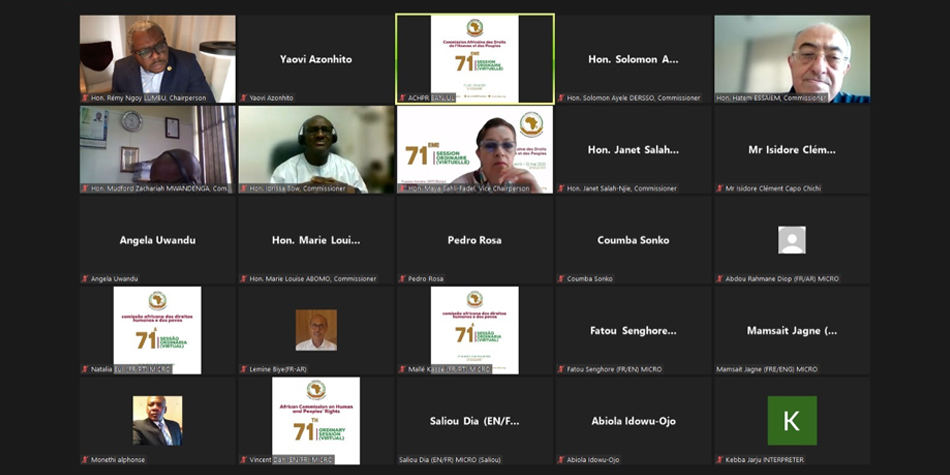
Article(s)
71st Ordinary session of the African Commission: focus on torture and the death penalty
By Sarah Saint-Sorny, on 9 June 2022
The African Commission on Human Rights and People (ACHPR) once again met on Zoom for its 71st Ordinary session from April 21st to May 13th, 2022. The honorable Rémy Ngoy Lumbu, President of the Commission, has expressed his hopes for the next session to take place in person in Banjul this autumn.
2022
Central African Republic
Congo
Democratic Republic of the Congo
Kenya
Malawi
Mauritania
Niger
Nigeria
Sierra Leone
Tunisia
Zambia

Article(s)
71e Session ordinaire de la Commission africaine : focus sur la torture et la peine de mort
By Sarah Saint-Sorny, on 9 June 2022
La Commission Africaine des Droits de l’Homme et des Peuples (CADHP) s’est encore une fois réunie sur Zoom pour sa 71e Session ordinaire du 21 avril au 13 mai 2022. L’Honorable Rémy Ngoy Lumbu, Président de la Commission, a fait part de son espoir de voir la prochaine session se tenir en présentiel à Banjul […]
Central African Republic
Congo
Democratic Republic of the Congo
Kenya
Malawi
Mauritania
Niger
Nigeria
Sierra Leone
Tunisia
Zambia

Article(s)
Déclaration conjointe pour la 71e Session ordinaire de la Commission africaine
By ECPM, FIACAT, Coalition mondiale contre la peine de mort, on 9 June 2022
Déclaration conjointe sur la situation de la peine de mort en Afrique pour la 71e Session ordinaire de la Commission africaine, signée par la FIACAT, ECPM et la Coalition mondiale contre la peine de mort.
Congo
Côte d'Ivoire
Democratic Republic of the Congo
Kenya
Liberia
Malawi
Niger
Uganda

Article(s)
Joint statement for the 71st Ordinary Session of the African Commission
By ECPM, FIACAT, World Coalition Against the Death Penalty, on 9 June 2022
Joint statement on the situation of the death penalty in Africa for the 71st Ordinary Session of the African Commission, signed by the FIACAT, ECPM and the World coalition.
Congo
Côte d'Ivoire
Democratic Republic of the Congo
Kenya
Liberia
Malawi
Niger
Uganda
Document(s)
FHRI and PRI submission to the UN Sec-Gen report on the status of the death penalty in East Africa – Kenya and Uganda April 2012
By Penal Reform International, on 8 September 2020
2020
NGO report
Warning: Undefined variable $liste_type_doc in /home/worldcoa/coalition2020/wp-content/themes/WCADP/template-parts/contents-document.php on line 21
Warning: Undefined variable $liste_pays in /home/worldcoa/coalition2020/wp-content/themes/WCADP/template-parts/contents-document.php on line 40
Kenya
Warning: Undefined variable $tag_langue in /home/worldcoa/coalition2020/wp-content/themes/WCADP/template-parts/contents-document.php on line 85
More details See the document
Two trends accompanying the abolition of the death penalty give reason for concern: there is a striking increase in offences that carry the sanction of life imprisonment as the sanction which typically replaces the death penalty following abolition or a moratorium of the death penalty; and a striking increase in prisoners serving this indefinite sentence. Secondly, a differential, harsher treatment is applied to them as compared to other categories of prisoners. At the same time, the development of international standards in any affirmative–if not legally binding– form are lacking. As a consequence states are more frequently enforcing a form of punishment problematic in terms of international human rights standards and norms.
- Document type NGO report
- Countries list Kenya
Warning: Undefined variable $liste_themes in /home/worldcoa/coalition2020/wp-content/themes/WCADP/template-parts/contents-document.php on line 114
Warning: Undefined variable $liste_themes in /home/worldcoa/coalition2020/wp-content/themes/WCADP/template-parts/contents-document.php on line 121
- Themes list Trend Towards Abolition,
Warning: Undefined variable $lien_langue in /home/worldcoa/coalition2020/wp-content/themes/WCADP/template-parts/contents-document.php on line 127
Document(s)
FHRI and PRI submission to the UN Sec-Gen report on the status of the death penalty in East Africa – Kenya and Uganda April 2012
By Penal Reform International, on 8 September 2020
NGO report
Warning: Undefined variable $liste_type_doc in /home/worldcoa/coalition2020/wp-content/themes/WCADP/template-parts/contents-document.php on line 21
Warning: Undefined variable $liste_pays in /home/worldcoa/coalition2020/wp-content/themes/WCADP/template-parts/contents-document.php on line 40
Kenya
Warning: Undefined variable $tag_langue in /home/worldcoa/coalition2020/wp-content/themes/WCADP/template-parts/contents-document.php on line 85
More details See the document
To date, Kenya and Uganda have not signed the Second Optional Protocol to the International Covenant on Civil and Political Rights and are not party to any international or regional treaty prohibiting the death penalty. While Kenya abstained from voting in the 2010 UN General Assembly moratorium resolution, Uganda voted against it and signed the note verbale of issociation.
- Document type NGO report
- Countries list Kenya
Warning: Undefined variable $liste_themes in /home/worldcoa/coalition2020/wp-content/themes/WCADP/template-parts/contents-document.php on line 114
Warning: Undefined variable $liste_themes in /home/worldcoa/coalition2020/wp-content/themes/WCADP/template-parts/contents-document.php on line 121
- Themes list Cruel, Inhuman and Degrading Treatment and Punishment, Discrimination, Country/Regional profiles,
Warning: Undefined variable $lien_langue in /home/worldcoa/coalition2020/wp-content/themes/WCADP/template-parts/contents-document.php on line 127
Article(s)
Call for actions on World Day in Sub-Saharan Africa 2
By World Coalition Against the Death Penalty, on 17 June 2020
The World Coalition Against the Death Penalty (World Coalition) and FIACAT are part of a joint project which aims to contribute to the abolition of the death penalty in Sub-Saharan Africa.
2020
Burkina Faso
Burundi
Cameroon
Congo
Côte d'Ivoire
Democratic Republic of the Congo
Ghana
Guinea
Kenya
Liberia
Mauritania
Niger
Senegal
Sierra Leone
Togo
United Republic of Tanzania
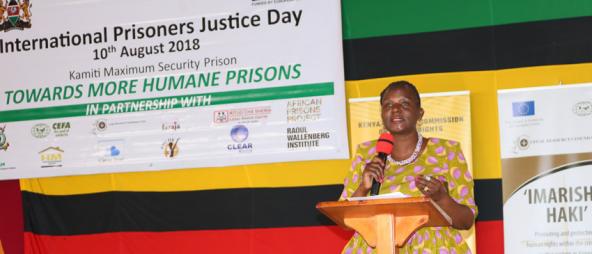
Article(s)
Kenya’s new taskforce to review death penalty laws
By Nicolas Chua, on 11 September 2018
In December 2017, two Kenyan men challenged the legality of capital punishment at the Supreme Court, which resulted in Chief Justice Marage declaring the « mandatory nature of the death sentence » unconstitutional. Following this groundbreaking statement, the Taskforce on the Review of the Mandatory Nature of the Death Penalty was appointed on March 15 2018.
2018
Kenya
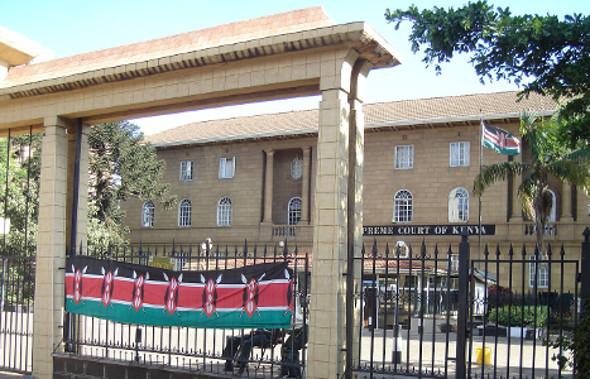
Article(s)
The Supreme Court of Kenya declares the mandatory death penalty unconstitutional
By Thalia Gerzso, on 23 January 2018
On December 14, 2017, the Supreme Court of Kenya declared the mandatory death penalty unconstitutional. This landmark decision puts an end to several years of uncertainties and constitutes an additional step towards the abolition of the death penalty in the country.
2018
Kenya
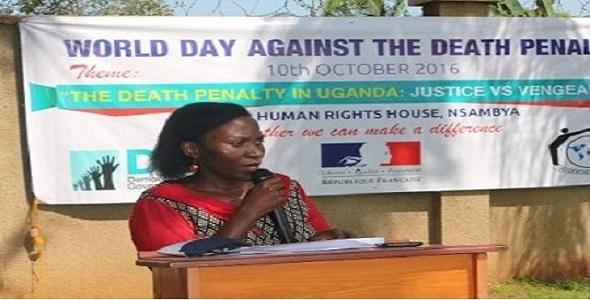
Article(s)
Pardon Prisoners On Death Row
By Lucy Peace Nantume, on 8 November 2016
At the end of October, the death sentences of more than 2,500 prisoners were commuted by the Kenyan President. The presidential power of mercy was also recently exercised by the Zimbabwean President, where 10 death row prisoners were pardoned.
2016
Clemency
Kenya
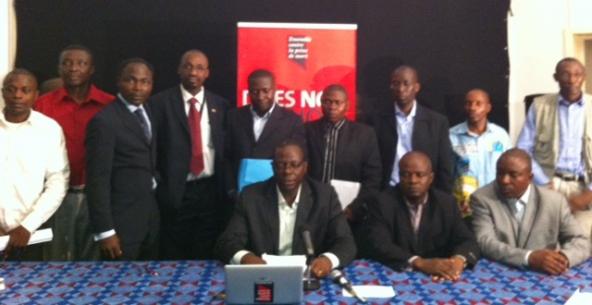
Article(s)
Abolitionists of Central Africa met in Kinshasa
By Amina Jacquemin with CPJ and ECPM, on 12 April 2012
ECPM (Together against the death penalty) and CPJ (Culture for Peace and Justice) organized a conference in late March on strategies for abolition at the regional level. The Congolese government has reaffirmed its commitment to abolish the death penalty.
2012
Burundi
Cameroon
Central African Republic
Chad
Congo
Democratic Republic of the Congo
Kenya
Uganda
United Republic of Tanzania
Article(s)
Kenya’s mandatory death penalty ruled unconstitutional
on 6 August 2010
A joint effort by Kenyan and British lawyers and NGOs resulted in a court decision overturning all death sentences for murder. Legislation making capital punishment the only possible penalty for certain crimes is invalid.
2010
Cruel, Inhuman and Degrading Treatment and Punishment
Kenya
Kenya
Article(s)
4,000 death sentences commuted in Kenya
on 6 August 2009
Kenya’s president has commuted all death sentences in the country in the wake of legal challenges brought by local and international activists.
2009
Clemency
Kenya
Kenya

